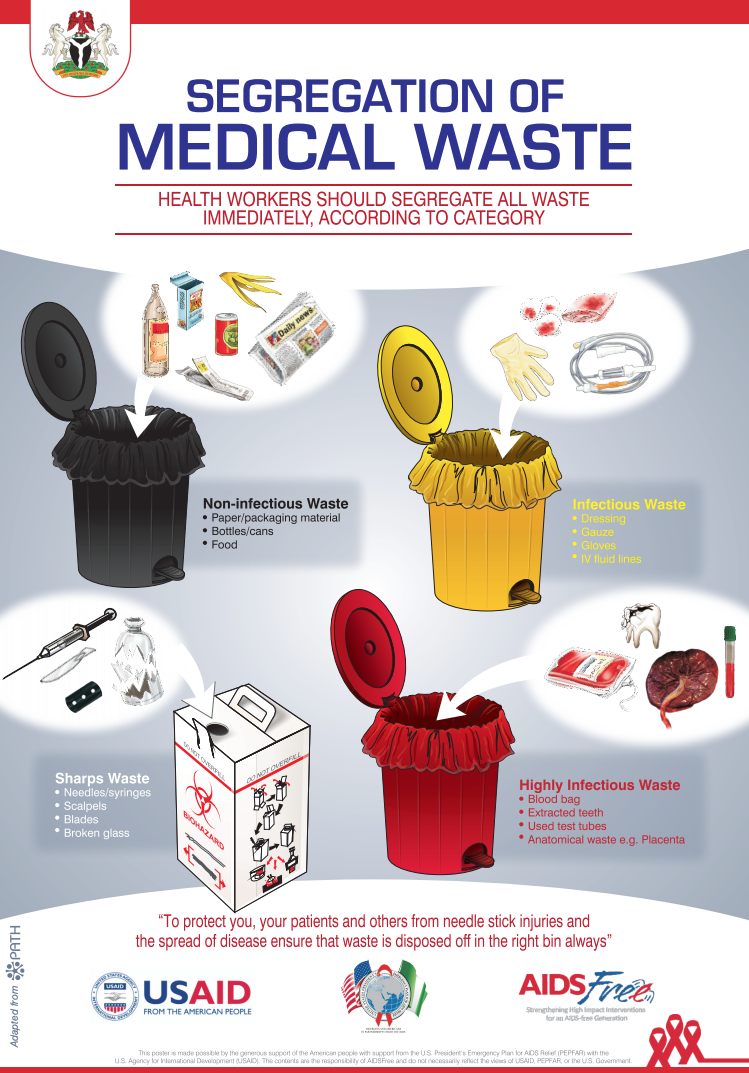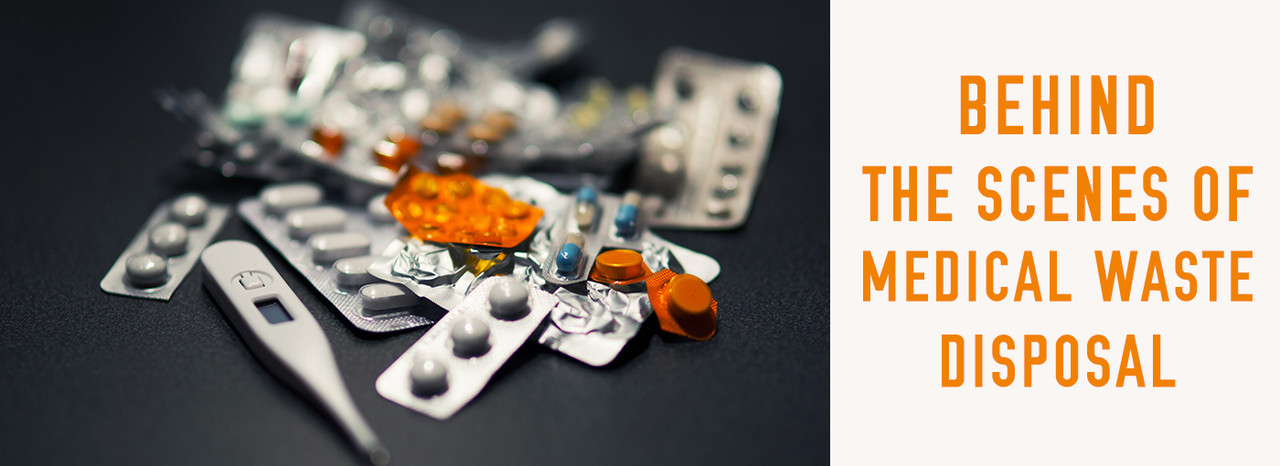Hospitals are often like small cities--they have cafeterias, places for patients to sleep, staff rooms, gift shops--a microcosm of the amenities a city might have inside its limits. Because of their need to provide superior care, this is by design. Naturally, it follows that these enormous structures create a lot of waste. For this post, we’ll just be focusing on medical waste and biohazards waste--specifically what hospitals do with medical waste. We’ll talk about the medical waste industry, as well as how new recycling initiatives have created a better world for the disposal (and often reuse) of medical waste.
What is medical waste?
It’s important to define what medical waste is because not everything that is thrown away or disposed of at a hospital qualifies. So, what is considered medical waste?

Source: Biomedical Waste Solutions
Generally speaking, medical waste and biohazardous waste are waste items that have may have been contaminated with blood, body fluids, potentially infectious or pathogenic materials. It’s important to note that to be considered medical or biohazardous waste, all the waste has to do is have the potential of being in contact with something hazardous.
Where it goes
The next, most likely question, now that we have a running definition of medical waste is where does medical waste go?

Source: USAID
Many estimate that on average, the hospitals and medical facilities of the world produce around 2 million tons of medical waste. That’s quite a bit. On top of all of this, many types of medical waste contain extremely carcinogenic and dangerous chemicals. Often, medical waste can contain heavy metals. Luckily, a process called autoclaving, which involves heating waste to an extremely high temperature and effectively sterilizing it, removes much of the dangers of pathogens or other nasty bugs getting out into our environment. The majority of medical waste that ends up in landfills has been sterilized or safely disposed of so it does not pose a threat to human populations or groundwater.
But, there’s an exciting part of this as well! In recent years, medical waste recycling has become a popular, safe, and highly useful practice.
Medical waste recycling
The recycling of biomedical waste is mostly maintained by private companies, which often oversee the collection, disposal, and resale of medical products. According to some, as much as 85 percent of medical waste is not biologically hazardous, and can thus be sterilized and repurposed. The degree to which medical waste is recycled is often left up to an individual hospital’s recycling policy. If you’re curious how your local hospital disposes of their medical waste, get in touch with them--they’ll usually explain how.
Medical waste solutions
At Trashcans Unlimited, we offer a wide variety of medical waste disposal solutions, from small to large. If you’re looking to supply your hospital (or potentially your home) with medically safe cans, we’ve got you covered. Additionally, our comparison tool will help you find the best can for the job. If you have questions about how to recycle medical waste, get in touch with us, and our customer service representatives will help you out.

